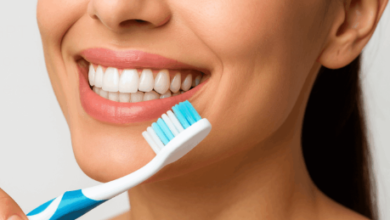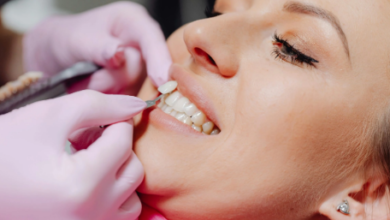How Smiling Can Boost Your Confidence and Happiness

The simple act of smiling holds remarkable power over our mental state, social interactions, and overall well-being. This universal expression, recognized across all cultures, serves as more than just a reflection of happiness. Research reveals that smiling actively creates positive changes in our brain chemistry, confidence levels, and relationships with others. Understanding these mechanisms can transform how you approach daily challenges and interactions.
The Science Behind Smiling and Confidence
When you smile, your brain releases a cocktail of feel-good chemicals including endorphins, dopamine, and serotonin. These neurotransmitters work together to reduce stress hormones like cortisol while elevating your mood naturally. The process creates a positive feedback loop where feeling better leads to more genuine smiles, which in turn reinforces confidence.
Studies conducted at the University of Kansas found that smiling during stressful situations can lower heart rate and reduce the body’s stress response. This physiological change directly impacts how confidently you handle challenges. When your body isn’t fighting stress hormones, you can think more clearly and respond more assertively to difficult situations.
The facial feedback hypothesis suggests that facial expressions influence emotions rather than simply reflecting them. By consciously smiling, you send signals to your brain that trigger positive emotional states. This connection between physical action and mental state means you can actively boost your confidence by choosing to smile, even during challenging moments.
Building Social Confidence Through Smiling
Smiling serves as a powerful social tool that opens doors to meaningful connections. When you smile genuinely, others perceive you as more approachable, trustworthy, and likeable. These positive perceptions create opportunities for social interaction that might otherwise remain closed.
Research indicates that people who smile frequently are viewed as more confident leaders and collaborators. The mirror neuron effect means that when you smile at someone, they often unconsciously mirror that expression, creating an instant positive connection. This biological response helps establish rapport quickly, making social situations less intimidating.
Confident smiling also influences how others respond to your ideas and suggestions. A study published in the Journal of Personality and Social Psychology found that people are more likely to agree with and support individuals who smile appropriately during presentations and conversations. This increased receptiveness can significantly boost your confidence in professional and personal settings.
The authenticity of your smile matters greatly in social situations. Genuine smiles, known as Duchenne smiles, engage both the mouth and eye muscles, creating crinkles around the eyes. These authentic expressions are more effective at building trust and connection than forced or fake smiles, which others can often detect subconsciously.
See also: Unveiling the Science of Tailored Dental Health Strategies
Physical Health Benefits That Support Confidence
The physical benefits of smiling extend far beyond momentary mood improvements. Regular smiling strengthens your immune system by reducing stress hormones that can weaken your body’s defenses. A stronger immune system means fewer sick days and more energy to pursue goals confidently.
Smiling also has cardiovascular benefits, helping to lower blood pressure and improve heart health. When you feel physically strong and healthy, confidence naturally follows. The improved circulation that comes with regular smiling can even enhance your complexion, giving you a natural glow that supports a positive self-image.
For those concerned about their smile’s appearance, modern dental solutions like veneers in San Jose, CA, and similar locations can help address aesthetic concerns that might prevent confident smiling. When you feel good about how your smile looks, you’re more likely to use it frequently, amplifying all the associated benefits.
The act of smiling uses multiple facial muscles, providing a mini-workout that can help maintain facial tone and reduce signs of aging. This physical aspect of smiling contributes to a more youthful appearance, which often correlates with increased confidence and positive self-perception.
Creating Positive Feedback Loops
One of the most powerful aspects of smiling is its ability to create self-reinforcing cycles of positivity. When you smile more often, people respond more positively to you, which provides external validation that boosts confidence. This increased confidence makes you more likely to smile, creating an upward spiral of positive interactions.
The psychological concept of embodied cognition suggests that physical actions influence thought patterns. By maintaining good posture and smiling regularly, you can actually change your thought processes to become more optimistic and confident. This mind-body connection means that the simple act of smiling can rewire your brain for greater happiness and self-assurance.
Practicing deliberate smiling throughout the day, even when alone, can help establish new neural pathways associated with positive emotions. Start with just a few minutes of conscious smiling during routine activities like brushing teeth or checking emails. Over time, this practice becomes more natural and automatic.
Overcoming Barriers to Confident Smiling
Some people struggle with smiling due to self-consciousness about their teeth, past negative experiences, or cultural factors. Addressing these barriers is crucial for accessing the confidence-boosting benefits of smiling. Professional dental care, therapy, or simply practicing in private can help overcome reluctance to smile.
Cultural awareness is important when using smiling as a confidence tool. While smiling is generally positive across cultures, the appropriate frequency and context can vary. Understanding these nuances helps you use smiling effectively in diverse social and professional environments.
Building a habit of gratitude can make smiling more natural and frequent. When you regularly acknowledge positive aspects of your life, genuine smiles come more easily. This authenticity enhances the confidence-building effects because the positive emotions are real rather than manufactured.
Smiling represents one of the most accessible and effective tools for boosting confidence and happiness. The scientific evidence clearly demonstrates that this simple facial expression triggers beneficial chemical reactions, improves social interactions, and supports physical health. By understanding and harnessing the power of smiling, you can create positive changes that extend far beyond the moment of the smile itself.




